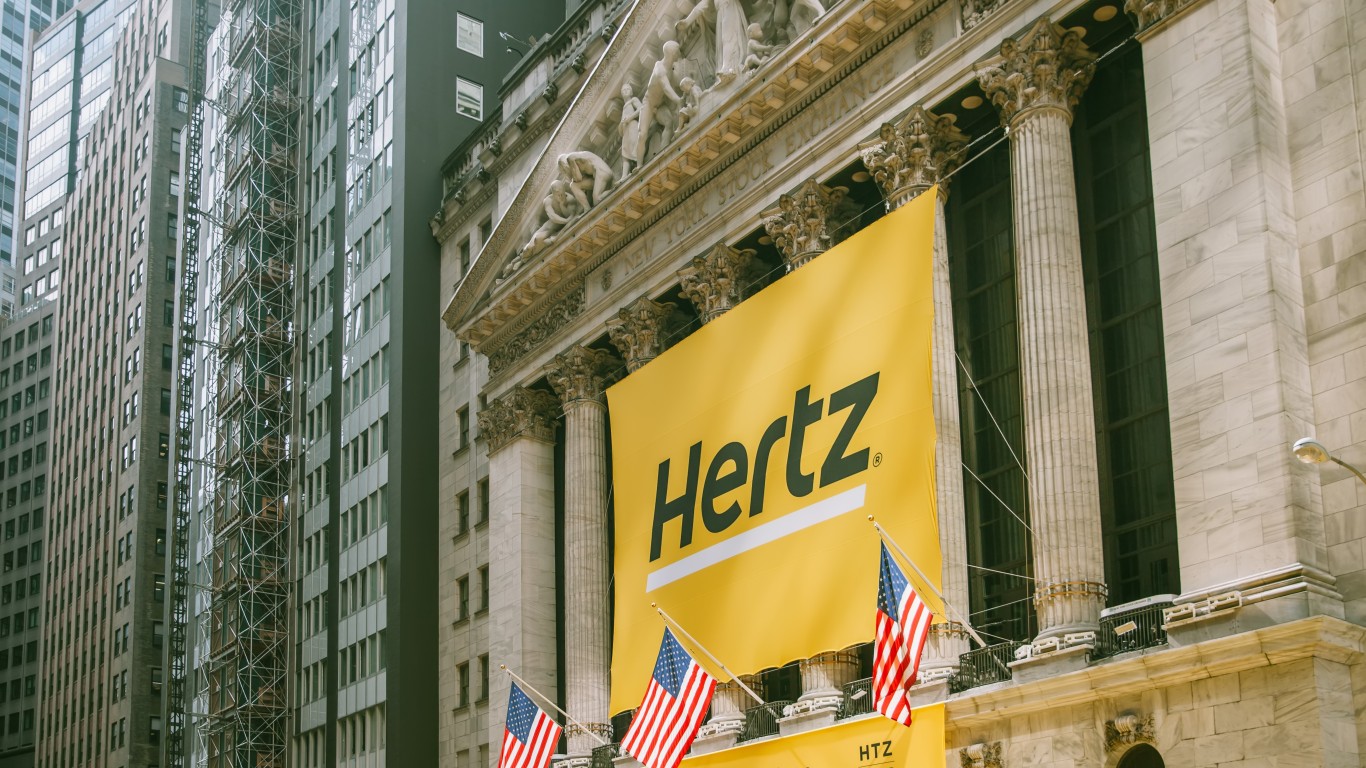
When car rental giant Hertz Global Holdings Inc. (NYSE: HTZ) reported second-quarter 2019 results Tuesday evening, the company noted a year-over-year U.S. revenue gain of 10% and jumps of 6% in both average rentals and transaction days.
In its report, Hertz said that the 6% rise in transaction days (from 38.75 million to 41.17 million) was “driven by higher demand from transportation network company drivers … and strong growth in retail and corporate categories.” Transportation network companies (TNCs) are ride-hailing firms like Uber Technologies Inc. (NYSE: UBER) and Lyft Inc. (NASDAQ: LYFT), and both Hertz and competitor Avis Budget Group Inc. (NASDAQ: CAR) offer low weekly rental rates for people who want to earn money as Uber or Lyft drivers.
Both Uber and Lyft launched agreements with the two auto rental firms in 2016 that give drivers low weekly or monthly rentals, liability insurance, routine maintenance, unlimited mileage, vehicle damage coverage and 24/7 roadside assistance. Hertz currently charges $219 a week for its Lyft Express rentals, which are then rented to drivers by Lyft. The Hertz rate is $214 a week.
In its second-quarter report, Hertz said that the 6% average vehicles increase was driven by 68% growth in the company’s TNC fleet. By any measure, then, TNC rentals are contributing solidly to Hertz’s results.
Adjusted EBITDA in U.S. rentals rose from $18 million in the second quarter of last year to $156 million. Adjusted EBITDA for the whole company rose from $93 million a year ago to $207 million. A shade over 75% of corporate EBITDA came from U.S. car rentals and over half of that growth came from TNC rentals.
While Hertz is satisfied with its TNC business, Lyft and Uber continue to struggle as the two firms duke it out over market share. Lyft, scheduled to report quarterly earnings after markets close Wednesday, is expected to post revenues of $809.3 million, and Uber, which reports after markets close on Thursday, is expected to post revenues of $3.39 billion. Both are expected to post significant per share losses.
Avis, which reported quarterly results on Monday, said U.S. adjusted EBITDA rose 42% to $152 million, nearly 87% of worldwide EBITDA in the quarter. Larry De Shon, Avis group president and CEO, said the company is seeing “meaningful benefits from our partnerships with Lyft” and others. Americas President Joe Ferraro noted regional adjusted EBITDA rose 2.5% year over year.
Can this boost last and will it grow? That all depends on how attractive the ride-sharing services can remain to potential drivers. The Los Angeles Times notes the difficulty some drivers have making a profit when they rent a vehicle from the Lyft Express program. An MIT study in 2018 concluded that drivers for both Uber and Lyft earn less than minimum wage and that a third of drivers are losing money. Uber disputed the results and the authors recalculated their results.
Still, ride-hailing drivers without cars are giving Hertz and Avis a nice boost, but as losses persist with the ride-hailing companies, the music won’t last forever because it can’t. When the music stops, the rental car companies will surely be safely seated but they’ll probably be wondering where their next profit driver will come from.
Hertz stock traded down more than 5.5% Wednesday morning, at $14.11 in a 52-week range of $11.30 to $19.44. The stock’s 12-month consensus price target is $18.55.
Avis Budget stock traded down about 5% to $32.00, in a 52-week range of $21.63 to $37.27 and with a price target of $42.57.
Both firms have lost more than 17% of their share price in the past 12 months and trade down about 50% over the past five years.
Are You Ahead, or Behind on Retirement? (sponsor)
If you’re one of the over 4 Million Americans set to retire this year, you may want to pay attention.
Finding a financial advisor who puts your interest first can be the difference between a rich retirement and barely getting by, and today it’s easier than ever. SmartAsset’s free tool matches you with up to three fiduciary financial advisors that serve your area in minutes. Each advisor has been carefully vetted, and must act in your best interests. Start your search now.
Don’t waste another minute; get started right here and help your retirement dreams become a retirement reality.
Thank you for reading! Have some feedback for us?
Contact the 24/7 Wall St. editorial team.


